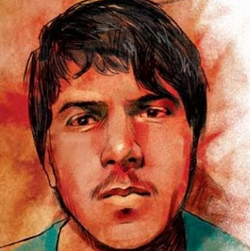 Mumbai, Nov 2: Ajmal Kasab, the sole surviving gunman from 26/11 who was hanged in November last year, had made an unsuccessful attempt to end his life inside the Arthur Road Jail premises and, in his last moments, asked for forgiveness for his 'mistake', home minister R R Patil has revealed in an interview in the Diwali annual of Maharashtra Times, a TOI group publication.
Mumbai, Nov 2: Ajmal Kasab, the sole surviving gunman from 26/11 who was hanged in November last year, had made an unsuccessful attempt to end his life inside the Arthur Road Jail premises and, in his last moments, asked for forgiveness for his 'mistake', home minister R R Patil has revealed in an interview in the Diwali annual of Maharashtra Times, a TOI group publication.
"Kasab had quirky habits. He would pace up and down the (prison) cell at night and sleep all day. He had a foul mouth, would turn violent without reason and would show his judo skills to security personnel guarding him. He once tore the bed sheet given to him and tried to strangulate himself with the help of the torn cloth. Our security personnel, however, snatched the cloth," Patil said.
The home minister said jail authorities had told him that the terrorist, who was said to have shown no remorse earlier, shuddered when he was being escorted to the gallows at Pune's Yerawada jail.
"His walk turned wobbly and he begged for mercy. His last words sought forgiveness. He said, 'Mujhe maaf kar do, meri chhoti behene hain, dobara aisi galti nahin hogi (forgive me, I have kid sisters back home, I will never repeat the mistake),' Patil said.
This is the first time Patil has given out details about Kasab's stay in prison and his subsequent hanging on November 21, 2012.
On Kasab's foul temper, Patil said, "He would charge angrily at the staff, so while entering his cell, police officials had to wear a 'supporter' as a safety measure."
Saying that the operation of executing the death sentence was called " Operation X" by the home department, Patil pointed out that in order to maintain the secrecy of the operation, police officers who escorted Kasab from Mumbai to the Pune jail were asked to deposit their cell phones with jail authorities in Mumbai.





Comments
Add new comment